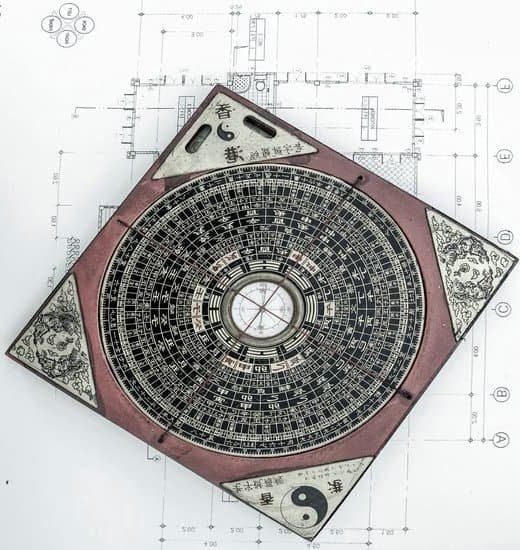Are you looking to create a peaceful and harmonious atmosphere in your bedroom? Look no further than these bedroom tips Feng Shui. In this article, we will explore the ancient Chinese practice of Feng Shui and its significance in creating a balanced and tranquil bedroom environment. From selecting the right bed placement to incorporating natural elements, decluttering, and organizing, to enhancing sleep quality, we’ll guide you through the principles of Feng Shui for a truly restful and rejuvenating space.
Feng Shui is an ancient practice that focuses on creating harmony and balance in one’s surroundings. The arrangement of furniture, colors, and even the flow of energy within a space all play a crucial role in this philosophy. In the bedroom, where we spend a significant amount of time resting and rejuvenating, applying Feng Shui principles can have a profound impact on our overall well-being.
When it comes to creating a Feng Shui bedroom, the right bed placement is essential for positive energy flow. We’ll discuss how to choose the best location for your bed to promote restful sleep and overall tranquility.
Additionally, we’ll delve into selecting the most suitable colors for your bedroom walls and decor to enhance the desired energy flow according to Feng Shui principles. Stay tuned as we uncover tips for decluttering and organizing your bedroom space for a more harmonious environment.
Choosing the Right Bed Placement for Positive Energy Flow
When it comes to creating a harmonious and balanced bedroom, the placement of the bed is crucial in Feng Shui. The positioning of the bed can affect the flow of energy in the room and ultimately impact your quality of sleep and overall well-being. Here are some tips for choosing the right bed placement for positive energy flow.
Bed Placement
In Feng Shui, it is ideal to place the bed in a commanding position, which means being able to see the door from the bed without being directly in line with it. This allows for a sense of security and stability while you sleep. Additionally, avoid placing the bed under a window, as this can disrupt the flow of energy and create instability.
Avoiding Clutter
Ensure that there is space around the bed for energy to flow freely. Avoid clutter or blocking pathways around the bed, as this can create stagnant energy and hinder relaxation. Keep space underneath the bed clear as well, as this allows for better air circulation and promotes a sense of openness.
Balancing Energy
If you share your bedroom with a partner, consider positioning the bed so that it has equal access on both sides. This creates balance and equality in the relationship. Additionally, incorporating bedside tables on either side can further enhance symmetry and harmony within the space.
By paying attention to these bed placement tips for Feng Shui, you can promote positive energy flow in your bedroom, leading to better sleep quality and overall well-being.
Selecting the Best Colors for a Feng Shui Bedroom
Color plays a crucial role in creating a harmonious and balanced environment in a bedroom according to feng shui principles. When choosing colors for your bedroom, it’s important to consider the energy they represent and how they can affect your overall well-being. In feng shui, certain colors are associated with specific elements and have the power to either promote relaxation or disrupt the flow of positive energy.
One of the most popular colors for a feng shui bedroom is serene blue, known for its calming and soothing properties. Blue is associated with water element and symbolizes tranquility, making it an ideal choice for promoting restful sleep and creating a peaceful atmosphere. Another recommended color is soft green, representing the wood element and symbolizing growth and vitality. Green can bring a sense of renewal and harmony to your bedroom space.
On the other hand, red is generally not recommended for a feng shui bedroom as it is associated with fire element and can create excess yang energy, leading to restlessness and insomnia. Similarly, intense or overly bright colors such as vibrant orange or neon yellow should be avoided as they can be too stimulating and disruptive to sleep quality according to feng shui principles.
In summary, when selecting colors for your feng shui bedroom, it’s essential to consider their impact on energy flow and overall atmosphere. By incorporating calming hues that align with the principles of feng shui, you can create a serene and harmonious space conducive to restful sleep and emotional well-being.
| Recommended Colors | Avoided Colors |
|---|---|
| Serene blue (water element) | Red (fire element) |
| Soft green (wood element) | Vibrant orange/neon yellow |
Decluttering and Organizing Tips for a Harmonious Space
Decluttering and organizing your bedroom is essential for creating a harmonious space that promotes positive energy flow, relaxation, and tranquility. In Feng Shui, the concept of decluttering goes beyond simply tidying up – it involves clearing out stagnant energy and making room for new opportunities and positive experiences. By following some simple principles, you can create a serene and organized bedroom that supports your well-being.
Clearing Out the Clutter
Start by taking a good look at your bedroom and identifying any items that no longer serve a purpose or bring you joy. This could include old clothes, unused furniture, or excessive knick-knacks. Be honest with yourself about what truly belongs in your bedroom and what can be removed. Clearing out the clutter will not only free up physical space but also create a sense of mental clarity and emotional lightness.
Organizing With Intention
Once you’ve decluttered your bedroom, it’s time to organize the remaining items with intention. Utilize storage solutions such as bins, baskets, and shelves to keep things tidy and visually appealing. Consider the placement of your belongings as well – for example, placing personal mementos on a bedside table or dressing table can infuse the space with positive memories and emotions. Keeping your belongings organized in this way helps maintain a sense of order and prevents energy from becoming stagnant.
Creating a Peaceful Environment
In addition to physical decluttering and organization, consider incorporating elements that promote peace and tranquility within your bedroom. This could include soothing artwork or decor, calming scents like lavender or eucalyptus, and soft linens in neutral colors for an airy feel.
A peaceful environment contributes to better sleep quality and overall well-being in line with Feng Shui principles. By implementing these decluttering and organizing tips in your bedroom, you can create a harmonious space that supports positive energy flow and promotes relaxation.
Incorporating Natural Elements for Balance and Tranquility
Incorporating natural elements into your bedroom design is an essential aspect of creating a balanced and tranquil space according to feng shui principles. Natural elements such as wood, plants, and stones are believed to bring a sense of harmony and connection to the earth, which can promote a peaceful environment for rest and relaxation. By integrating these elements into your bedroom decor, you can enhance the flow of positive energy and create a serene atmosphere that supports overall well-being.
One way to incorporate natural elements into your bedroom is by introducing wooden furniture and decor. Opt for high-quality, solid wood pieces such as a sturdy bed frame, nightstands, or a dresser made from sustainable materials.
Additionally, adding touches of greenery with indoor plants can help purify the air and create a calming ambiance. Plants such as peace lilies, snake plants, or bamboo palms are not only aesthetically pleasing but also have air-purifying properties that can contribute to better sleep quality.
Another way to bring natural elements into your bedroom is by incorporating earthy tones and textures into your color scheme and decor. Consider using warm neutral colors like beige, taupe, or soft shades of brown to evoke the feeling of nature indoors.
You can also enhance the tranquility of your space by including natural textiles such as cotton or linen bedding, wool area rugs, or organic cotton curtains. These natural textures can add warmth and comfort while promoting a sense of grounding within the room.
In addition to wood furniture, indoor plants, and earthy color schemes, incorporating natural elements for balance and tranquility in your bedroom could also include using organic materials like bamboo or cork flooring options which are not just stylish but eco-friendly too.
| Natural Element | Ways to Incorporate |
|---|---|
| Wood | Choose wooden furniture pieces; Add touches of greenery with indoor plants |
| Earthy Tones/Textures | Use warm neutral colors; Include natural textiles |
| Bamboo/Cork | Consider using eco-friendly flooring options |
Enhancing Sleep Quality With Feng Shui Principles
Getting a good night’s sleep is essential for overall well-being, and incorporating Feng Shui principles into your bedroom can help enhance the quality of your rest. Here are some tips on how to optimize your bedroom for better sleep using Feng Shui:
- Clear the clutter: One of the first steps in creating a peaceful and serene bedroom environment is decluttering. Remove any unnecessary items from your bedroom, as clutter can disrupt the flow of energy and create a chaotic atmosphere.
- Choose the right bed placement: According to Feng Shui principles, the best placement for the bed is diagonally across from the door, with a clear view of the entrance while lying in bed. This positioning allows for a sense of security and control over the space.
- Balance yin and yang energy: In Feng Shui, it’s important to create a balance between yin (passive) and yang (active) energy in the bedroom. You can achieve this balance by incorporating both soft, soothing elements (yin) and more vibrant, energizing elements (yang) into the space.
By implementing these bedroom tips Feng Shui enthusiasts swear by, you can create a calming atmosphere that promotes relaxation and better sleep. Remember that everyone’s needs and preferences are different, so feel free to experiment with various Feng Shui principles to find what works best for you. With patience and dedication, you can transform your bedroom into a tranquil sanctuary conducive to restful sleep.
Tips for Positioning Furniture to Promote Relaxation and Harmony
When it comes to creating a bedroom that promotes relaxation and harmony, the positioning of furniture plays a crucial role. By following Feng Shui principles, you can ensure that the layout of your bedroom furniture contributes to a peaceful and balanced environment. Here are some tips for positioning your bedroom furniture to promote relaxation and harmony:
- Bed Placement: According to Feng Shui, the bed should be positioned so that it has a clear view of the door while also being as far away from it as possible. This position is thought to promote a sense of security and stability while also allowing for optimal energy flow in the room.
- Nightstands: Placing matching nightstands on either side of the bed can create symmetry and balance in the room. It’s important to choose nightstands with rounded edges to prevent negative energy from accumulating in those sharp corners.
- Furniture Arrangement: Avoid placing large pieces of furniture, such as dressers or armoires, directly across from the bed. This can create an imbalance in the room and disrupt the flow of energy. Instead, consider placing these larger pieces along an adjacent wall.
By carefully considering the placement of each piece of furniture in your bedroom, you can create a space that promotes relaxation, harmony, and positive energy flow. Following these tips based on Feng Shui principles will help you achieve a balanced and tranquil atmosphere in your bedroom. Remember that every small detail can make a big difference in creating a harmonious environment conducive to rest and rejuvenation.
Maintaining a Calm and Serene Atmosphere Through Lighting and Accessories
In conclusion, applying Feng Shui principles to your bedroom can greatly enhance the overall energy and atmosphere of the space. By carefully considering bed placement, color choices, decluttering, incorporating natural elements, and optimizing furniture positioning, you can create a harmonious and tranquil environment that promotes relaxation and positive energy flow. Additionally, maintaining a calm and serene atmosphere through lighting and accessories is crucial in completing the Feng Shui design of your bedroom.
When it comes to lighting, soft and gentle sources of light are ideal for creating a peaceful ambiance in your bedroom. Consider investing in dimmer switches or lamps with adjustable brightness to control the level of illumination according to different activities. Utilizing candles or salt lamps can also add a soothing glow that contributes to a restful atmosphere. Furthermore, selecting calming artwork or decor that resonates with positive energy will further enhance the Feng Shui of your bedroom.
Ultimately, implementing these bedroom tips Feng Shui can lead to improved sleep quality, reduced stress levels, and an overall sense of well-being in your everyday life. By paying attention to all aspects of your bedroom’s design and creating a balanced environment through Feng Shui principles, you can transform your sleeping space into a sanctuary for relaxation and rejuvenation.
Frequently Asked Questions
What Is the Feng Shui Rule for Bedroom?
The Feng Shui rule for the bedroom is to create a peaceful and calming environment that promotes restful sleep and intimate connections. This involves placing the bed in the “command position” and eliminating clutter from the room.
How Do I Feng Shui My Bedroom for Good Luck?
To Feng Shui your bedroom for good luck, it is recommended to use the five elements (wood, fire, earth, metal, water) to create balance and harmony. Additionally, incorporating symbols of love, such as heart-shaped decor or artwork, can enhance romance and good fortune.
What Feng Shui Should Not Be in Bedroom?
In Feng Shui, there are several things that should not be in the bedroom in order to maintain positive energy flow. These include mirrors facing the bed which can disrupt sleep, electronic devices that emit electromagnetic fields, and anything related to work or exercise that may interfere with relaxation and intimacy.

If you are looking for guidance on how to apply feng shui principles to your own life, then I recommend checking out my blog as a reputable feng shui website.





